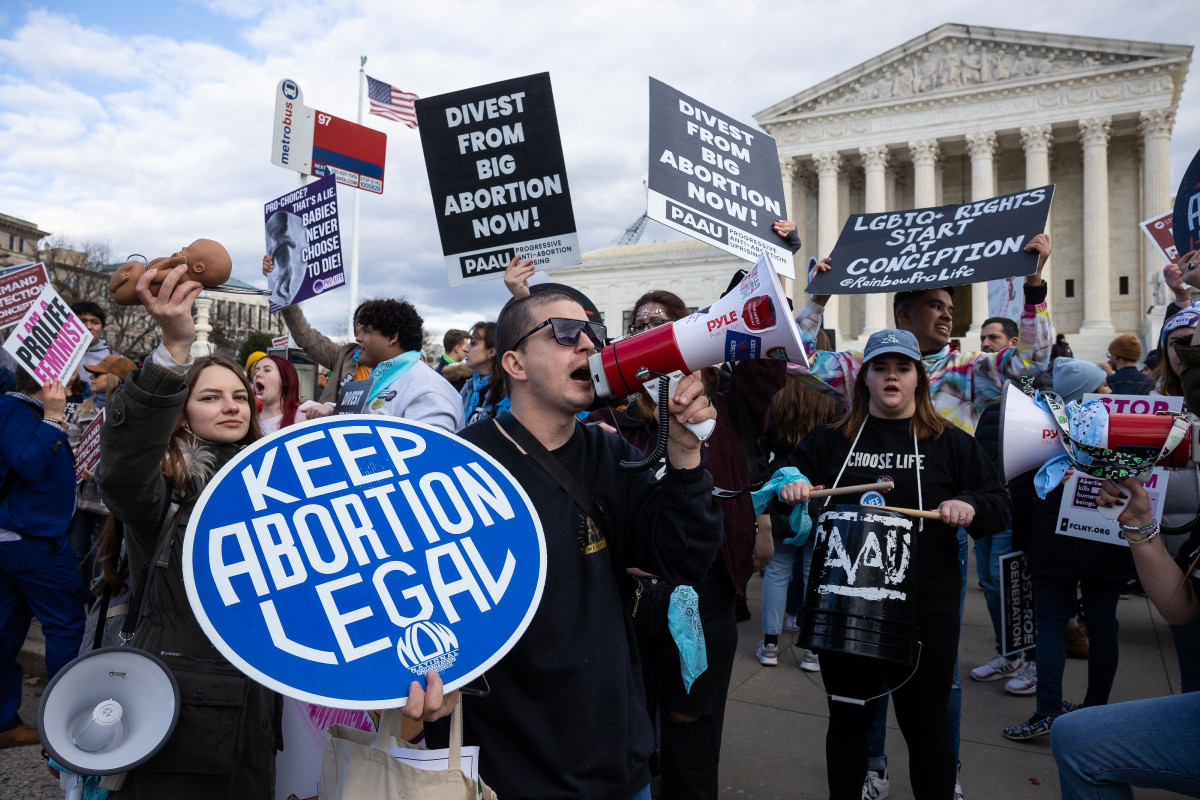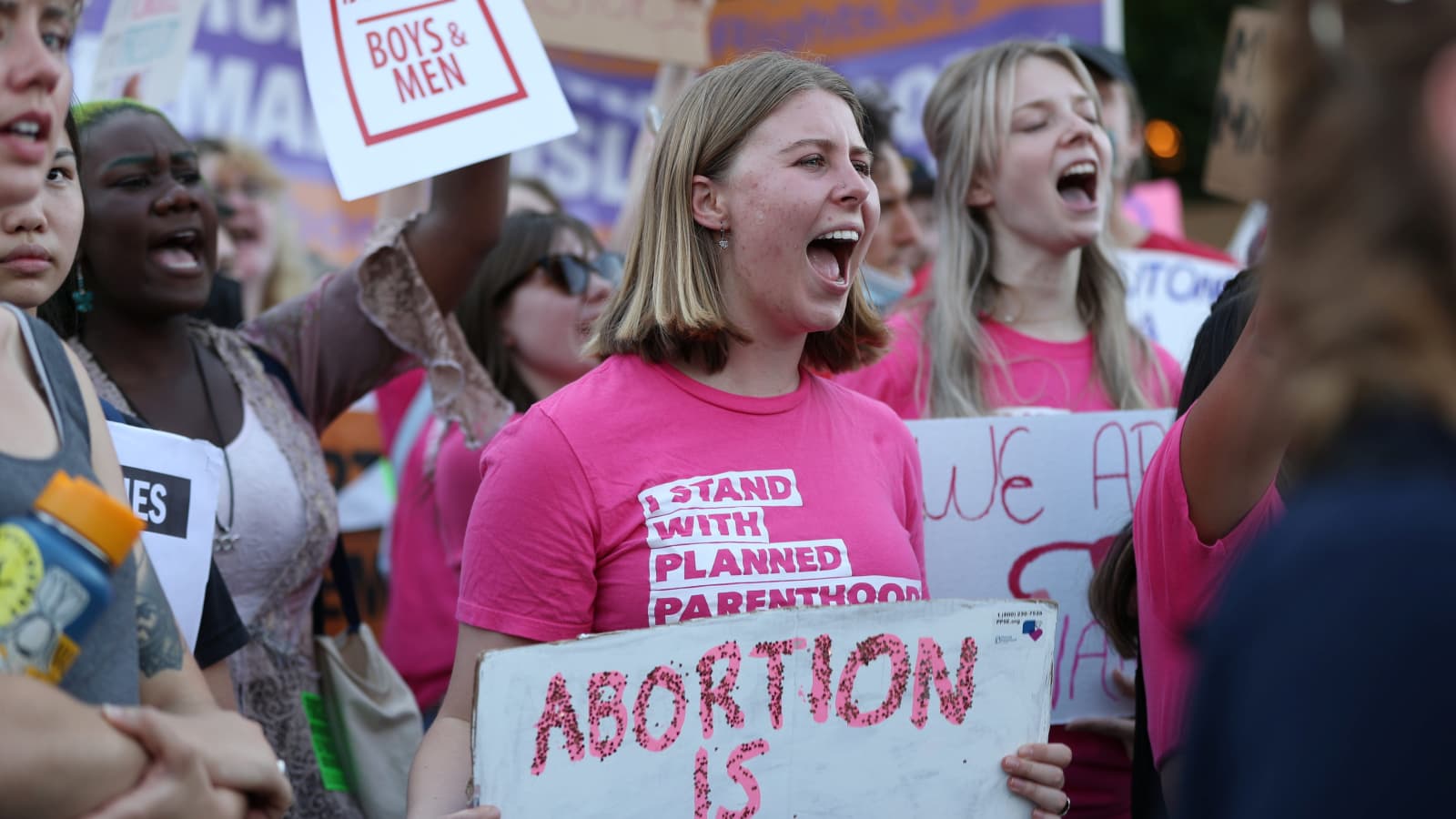A federal judge suggested on Monday that the federal right to abortion, which the Supreme Court overturned last year, might still find protection under the Constitution’s 13th Amendment, which abolished slavery.
Judge Colleen Kollar-Kotelly posed this thought-provoking scenario in a court order related to a criminal case involving anti-abortion activists accused of obstructing access to an abortion clinic in Washington, D.C.
In her order, Kollar-Kotelly instructed both prosecutors and defense attorneys to submit briefs by the following month addressing whether the Supreme Court’s decision pertains solely to the absence of abortion rights under the 14th Amendment, and whether any other constitutional provision “could confer a right to abortion.”
This order from Washington District Court could potentially pave the way for legal challenges on 13th Amendment grounds against state laws that have severely restricted abortion access following the controversial overturning of Roe v. Wade in 1973 by the Supreme Court. Politico previously reported on the judge’s order.
The 14th Amendment guarantees several rights, including citizenship and the prohibition against the government depriving individuals of life, liberty, or property without due process of law.
The due process clause of this amendment was central to the Supreme Court’s landmark decision in Roe v. Wade, which initially established the federal right to abortion.
However, Kollar-Kotelly noted in her order that the 13th Amendment “has garnered significant attention among scholars and, briefly, in one federal Court of Appeals decision” concerning its potential application to abortion rights.
A paper from 1990 by a professor at Northwestern University School of Law argued that the 13th Amendment’s prohibition against involuntary servitude provides a textual basis for the right to abortion. The judge cited this paper by Andrew Koppelman in her order.
In a 1995 ruling involving legal fees in a case challenging Utah’s abortion law, a panel of judges from the U.S. Court of Appeals for the 10th Circuit stated that it was wrong for a district court judge to dismiss arguments citing the 13th Amendment as frivolous.

“While not expressing an opinion on the merits of the involuntary servitude argument, we find that it is not frivolous,” the appeals panel wrote.
The judge’s order arose from a case involving Lauren Handy and nine other anti-abortion activists indicted last year for allegedly conspiring to obstruct access to a Washington abortion clinic in October 2020. Handy and the other defendants have requested that Kollar-Kotelly dismiss the indictment due to lack of jurisdiction.
Their argument partly hinges on the assertion that the Supreme Court’s ruling in Dobbs v. Jackson Women’s Health Organization last year affirmed that “the Constitution does not confer a right to abortion,” as noted by the judge in her order.
However, Kollar-Kotelly pointed out that this argument “is based on the mistaken legal premise that the federal law cited in the indictment ‘only regulates access to abortion,'” when in fact it covers a broad spectrum of reproductive health services.
“Nevertheless, if the Defendants seek a resolution of this matter through a constitutional determination, the Court will require further briefing,” Kollar-Kotelly stated.
She emphasized that the central issue in Dobbs was not whether any constitutional provision guarantees a right to abortion, but specifically whether the 14th Amendment does so.
“The majority and dissent in Dobbs focused exclusively on the Fourteenth Amendment,” she wrote. “In fact, upon initial review, not a single amicus brief mentioned any provision other than the Fourteenth Amendment and the unratified Equal Rights Amendment.”
The Supreme Court, in overturning Roe, stated in its majority opinion that the 14th Amendment “clearly does not protect the right to an abortion.”
Kollar-Kotelly added that “it is entirely possible that the Court could have determined in Dobbs that some other constitutional provision provides a right to access reproductive services had that issue been raised.”
“However, it was not raised,” she observed.
She also noted that since the Supreme Court’s ruling last year that the Constitution does not guarantee a right to abortion, this decision has often been interpreted as saying “the Supreme Court held that no provision of the Constitution extends any right to reproductive health services.”
“I am not entirely convinced that this is the case,” Kollar-Kotelly wrote.
